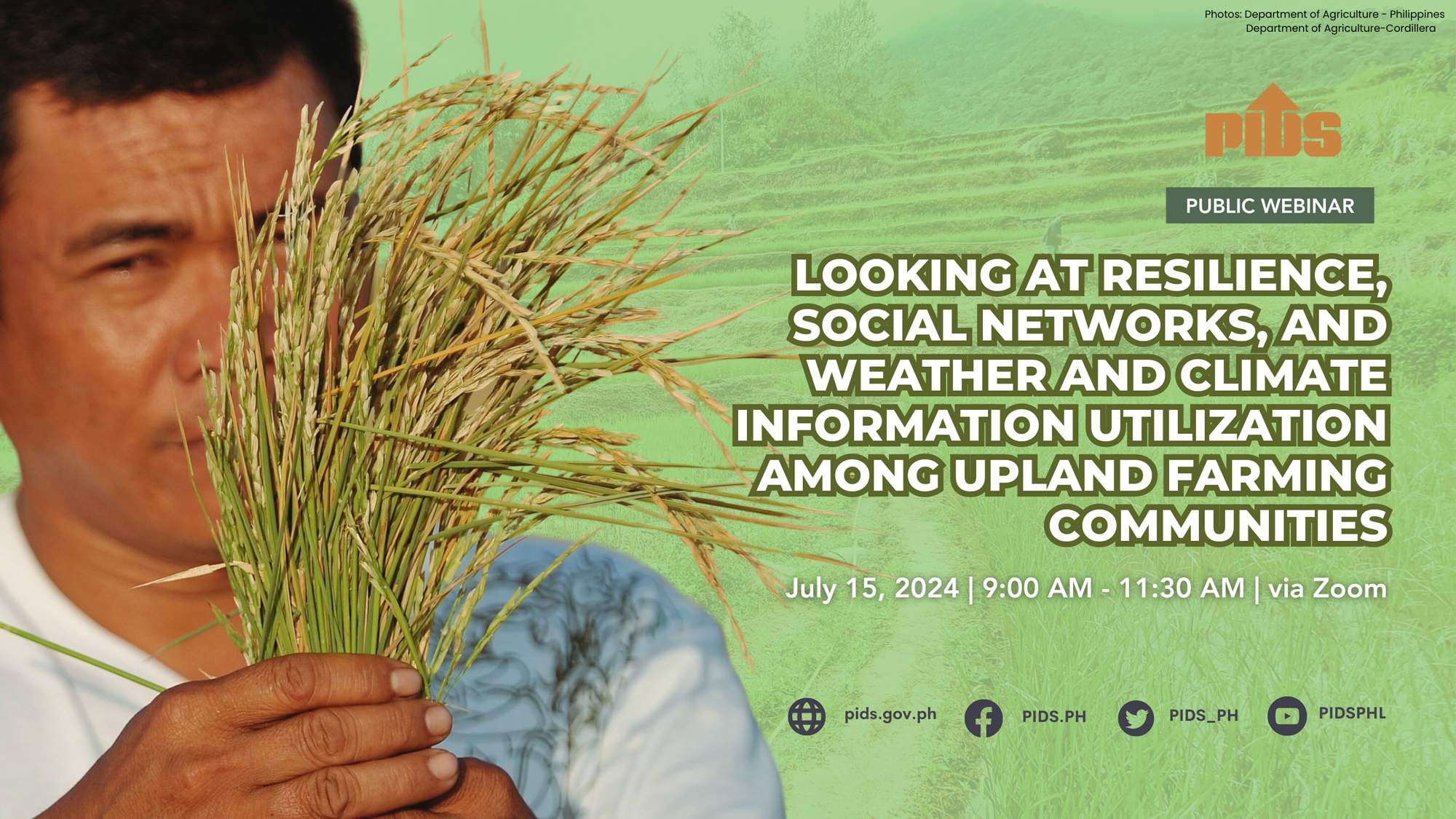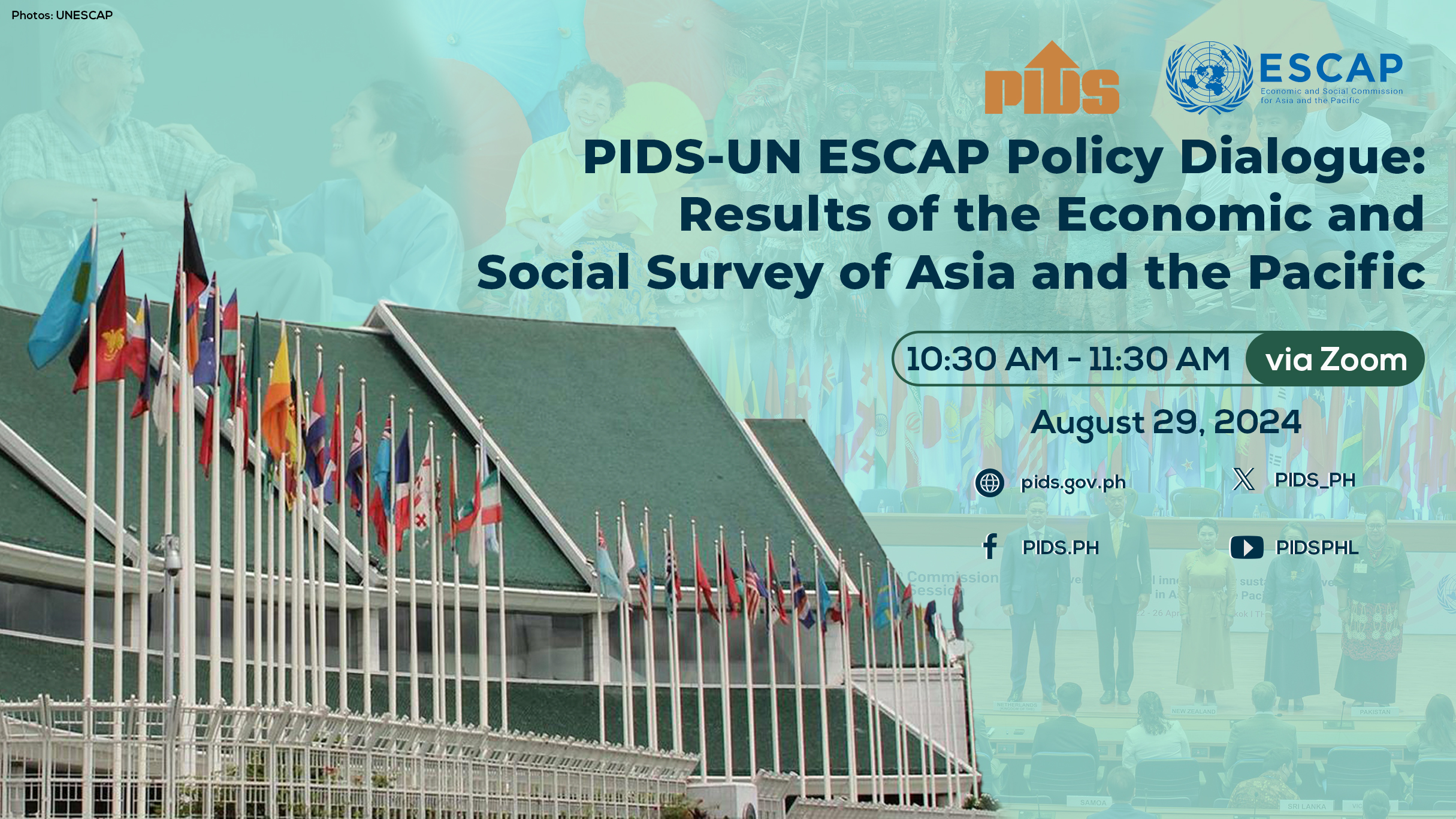MANILA, Philippines — Senior citizens, many of whom struggle with poverty, are less economically active as a sector and need greater health services and social pensions in the time of pandemic, where gaps in government policies and programs are much more pronounced, a government-ran think tank found.
Under the quarantine guidelines set by the Inter-Agency Task Force on Emerging Infectious Diseases, anyone 21-years-old and below and 60-years-old and above, or those with immunodeficiency, comorbidities or other health risks, along with pregnant women are required to stay at home at all times during the quarantine period.
Especially for that time, though, a social pension amounting to just P500 per month will not do, as this only represents 20% of the poverty threshold in 2018 and 30% of food threshold, the Philippine Institute for Development Studies found.
At a webinar entitled “Addressing the Needs of Senior Citizens in the Philippines,” the state-run think tank disclosed its study that found that only 3 in every 10 senior citizens are covered in PhilHealth and at least one of the government's income support programs, while only 7 in 10 elderly Filipinos under the classification are covered in either the GSIS, SSS or social pension.
"Only 27.7% of seniors are SSS or GSIS members, [and] there is low membership among the poorer elderly, due to the nature of their work. There is also low membership among workers in the private sector," the think tank said in its presentation.
According to the country's 2015 Census of Population and Housing, there are about 7.5 million senior citizens, defined by the country’s laws as persons aged over 60, in the Philippines.
The Philippine Statistics Authority also estimates that the sector will grow by 15.9% by 2045 while a 2017 report by the United Nations projects that the Philippines' elderly population will swell to 15 million by 2050.
“Senior citizens tend to have higher prevalence of various medical diseases and comorbidities. Moreover, they are less economically active compared to younger age groups. Thus, this projected increase in the number of senior citizens entails greater support needed in terms of healthcare and income security for the elderly,” PIDS said.
Many senior citizens struggle with poverty, the study found: of this estimated population of senior citizens, about 890,000, or 13.2%, belong to families classified by the government as income poor while another 400,000 or around 4.3% of them are recorded as food poor.
Only about a third of the poor seniors receive a social pension of any form, they said, while 39.5% belong to the poorest 5 deciles and 60.5% belong to the 5 richest deciles.
PIDS was careful to point out though, that much of the findings were based on 2015 and 2017 data.
Less than half of the sector is employed, with only 42% of them being classified as “gainful workers” while only 3.8 million senior citizens (51%) completed its elementary education at most.
In her presentation, PIDS president Celia Reyes recommended increasing the monthly stipend of senior citizens as the current amount of P500 “may not be enough to sustain [their] daily needs.”
She also recommended the national government “promote data sharing and interoperability of databases of different agencies.” Better information dissemination also factored in the study: for instance, by virtue of Republic Act No. 10645, all senior citizens are entitled to mandatory PhilHealth coverage, but according to Reyes, not all are actually aware of this.
“For targeted interventions, data is crucial. To identify eligible beneficiaries, data coming from different sources may be needed to validate administrative data...this probably suggests the need to revisit the eligibility criteria and how they can be more effectively implemented,” she added.
During his fifth State of the Nation Address, though, the president's first and only mention of the sector was when he flatly asserted: "Our indigent senior citizens were also provided with a stipend for the [first] semester of the current year."
Under the quarantine guidelines set by the Inter-Agency Task Force on Emerging Infectious Diseases, anyone 21-years-old and below and 60-years-old and above, or those with immunodeficiency, comorbidities or other health risks, along with pregnant women are required to stay at home at all times during the quarantine period.
Especially for that time, though, a social pension amounting to just P500 per month will not do, as this only represents 20% of the poverty threshold in 2018 and 30% of food threshold, the Philippine Institute for Development Studies found.
At a webinar entitled “Addressing the Needs of Senior Citizens in the Philippines,” the state-run think tank disclosed its study that found that only 3 in every 10 senior citizens are covered in PhilHealth and at least one of the government's income support programs, while only 7 in 10 elderly Filipinos under the classification are covered in either the GSIS, SSS or social pension.
"Only 27.7% of seniors are SSS or GSIS members, [and] there is low membership among the poorer elderly, due to the nature of their work. There is also low membership among workers in the private sector," the think tank said in its presentation.
According to the country's 2015 Census of Population and Housing, there are about 7.5 million senior citizens, defined by the country’s laws as persons aged over 60, in the Philippines.
The Philippine Statistics Authority also estimates that the sector will grow by 15.9% by 2045 while a 2017 report by the United Nations projects that the Philippines' elderly population will swell to 15 million by 2050.
“Senior citizens tend to have higher prevalence of various medical diseases and comorbidities. Moreover, they are less economically active compared to younger age groups. Thus, this projected increase in the number of senior citizens entails greater support needed in terms of healthcare and income security for the elderly,” PIDS said.
Many senior citizens struggle with poverty, the study found: of this estimated population of senior citizens, about 890,000, or 13.2%, belong to families classified by the government as income poor while another 400,000 or around 4.3% of them are recorded as food poor.
Only about a third of the poor seniors receive a social pension of any form, they said, while 39.5% belong to the poorest 5 deciles and 60.5% belong to the 5 richest deciles.
PIDS was careful to point out though, that much of the findings were based on 2015 and 2017 data.
Less than half of the sector is employed, with only 42% of them being classified as “gainful workers” while only 3.8 million senior citizens (51%) completed its elementary education at most.
In her presentation, PIDS president Celia Reyes recommended increasing the monthly stipend of senior citizens as the current amount of P500 “may not be enough to sustain [their] daily needs.”
She also recommended the national government “promote data sharing and interoperability of databases of different agencies.” Better information dissemination also factored in the study: for instance, by virtue of Republic Act No. 10645, all senior citizens are entitled to mandatory PhilHealth coverage, but according to Reyes, not all are actually aware of this.
“For targeted interventions, data is crucial. To identify eligible beneficiaries, data coming from different sources may be needed to validate administrative data...this probably suggests the need to revisit the eligibility criteria and how they can be more effectively implemented,” she added.
During his fifth State of the Nation Address, though, the president's first and only mention of the sector was when he flatly asserted: "Our indigent senior citizens were also provided with a stipend for the [first] semester of the current year."












